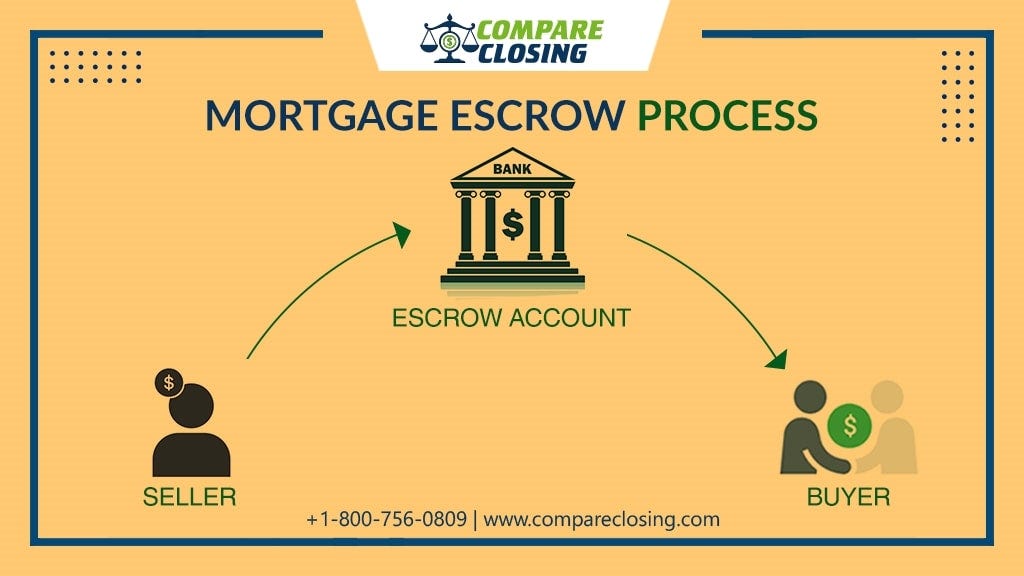
About Mortgage Escrow Process
A new home purchase can be an intimidating process, as most of the borrowers may not be ready for it. One of the most confusing processes could be the escrow process also known as closing.
The escrow process starts when the seller accepts your offer to buy his house, and continues till you as a buyer receive the key to the house.
What Is An Escrow?
Before we go through the escrow process, we will understand what an escrow is. An escrow is an account held by a third party on behalf of the buyer and the seller till the time the property purchase transaction is completed successfully.
It is like a temporary saving account held by the third party till all the seller’s and buyer’s conditions are fulfilled.
How Long Does Escrow Take?
The complete time frame for the escrow process timeline varies as it is based on many factors.
Some of the parameters that may determine the time it takes for closing are; mortgage pre-approval letter, timely procurement and submission of documents, and the time it takes for the mortgage underwriting process.
Just like the time frame taken for closing, the escrow process can also depend on the regulations imposed by the specific state. Below mentioned are the generic steps of the escrow process.
Escrow Account Opening
To open an escrow account you don’t have to do it personally.
Once you and the seller sign the purchase contract, the escrow agent will collect an EMD (earnest money deposit) check in the escrow account with the escrow company mentioned in the contract.
This company is a neutral third party. The job of this company is to collect the required funds and the docs in the property purchase transaction from the very first EMD till the closing docs are signed.
Appraisal Process
The next step in the escrow process is the property appraisal. Once the seller accepts the offer and the EMD is received, the lender will order for appraisals.
This is one of the most important steps in the process as it depends on appraisals if your process would move ahead or you have to cancel the agreement.
If the appraisal value comes less than the selling price in the contract, the lender will not proceed with the mortgage application.
If the appraised property value is less than the selling price quoted by the seller, you can ask the seller to reduce the price and create a new contract accordingly.
Or, get a second appraisal and hope it matches the sales price on the contract.
Securing The Mortgage
You must have received a pre-approval from your lender before signing the purchase contract.
Once the lender gets an update about the address and the sales contract, they will start the process of the loan application.
Initially, they will provide you with the initial loan estimate where all the loan parameters would be mentioned like; interest rate, closing cost, loan program, tenure, and loan amount.
There are a few things that you can negotiate and shop around for. Once you sign and accept the estimate, the lender will put your file for underwriting with the required documents.
Shop For Homeowners Insurance
Homeowners insurance is something that you have to keep paying till you own this property.
Hence it is imperative that you seek and shop around for adequate coverage for your house depending on the geographical location of the subject property.
Title Insurance And Title Report
A title report is generated by the title company to show if there are no claims or liens on the property that you are not aware of.
If the report is clear, then the lender will order title insurance as well. If there is any dispute or error in the report, it is the seller’s responsibility to clear the dispute or error.
The title insurance will help you protect your claim on the property legally if any claims for the property show’s up in the future which were not found while the initial title search.
The Closing Escrow
This is the final step in the escrow process timeline. In this process, all the closing documents need to be signed between the buyer and the seller. Yes, the documents list could be huge.
However, it is worth the feeling of a property owner. The escrow officer will prepare all the documents including the deed with the buyer’s name as the new owner of the property and will send it to the county office for recording.
The buyer needs to arrange the funds for closing costs and down payment through a cashier’s check or wire transfer.
Conclusion
The best part is that you as a buyer don’t have to do anything in the entire escrow process timeline, accept for providing documents and making the payment for the EMD, down payment, and the closing costs.
Your real estate agent will be taking care of the rest of the things. However, it is important to understand the escrow process timeline as you would be prepared and know which step would be next.
https://www.compareclosing.com/blog/all-about-mortgage-escrow-process/
Comments
Post a Comment